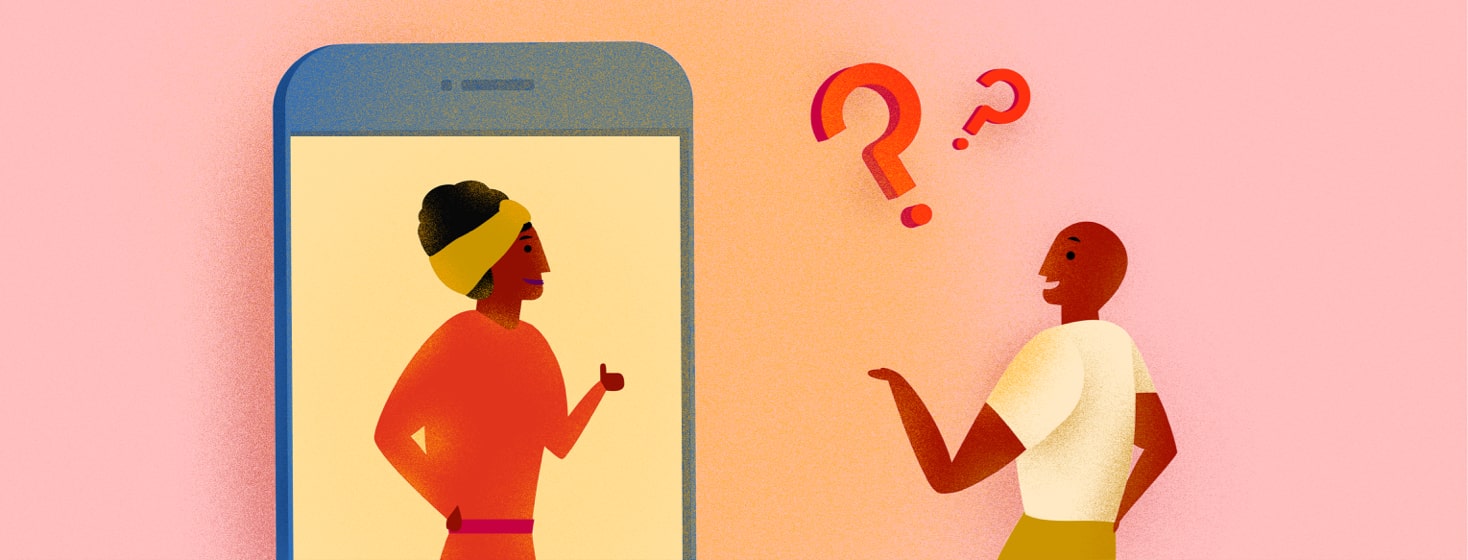Ask the Advocates: Rare Disease Day
Rare Disease Day® is celebrated on the last day of February every year. This year, it falls on February 28, 2022. This day is designed to support those living with rare conditions, create awareness, and build community.
We asked a few advocates to share their perspectives on living with sickle cell and rare diseases. Check out their responses below!
Do you consider sickle cell a rare disease?
In the U.S., sickle cell is considered a rare disease because there are less than 200,000 people living with the condition.
"I do NOT think sickle cell disease is a rare condition. First of all, it's one of the most common diseases in Africa and the Mediterranean. Second, even in the US it's the most common of the "rare diseases" affecting 1/300 people. That doesn't even include the trait that affects 1/12 African Americans. And outside of all of that, even in the US, sickle cell disease is the MOST common genetically inherited blood disorder." ~ Halimat
On the other end of the spectrum, we see an advocate sharing why she considers sickle cell a rare disease.
"Sickle cell is most certainly a rare disease because it affects a small percentage of the population (especially in the US), occurs throughout a person's life, and is genetic. There are many health disparities in communities of color. With sickle cell impacting mostly black/brown patients, it is so important to raise awareness for the disease. In the US, SCD affects about 1 out of every 365 Black or African-American births and 1 out of every 16,300 Hispanic-American births." ~ Wunmi
Do you feel like sickle cell feels rare because it is an invisible illness? Why or why not?
"Sickle cell is definitely an invisible disease, however, that's not at all why it counts towards the "rare" category. It's considered "rare" because it affects less than 200,000 people a year in the US (it affects 100,000). But what's truly rare about sickle cell is education, awareness, research, resources, and treatments for the disease. And that's because America has decided it only affects the same populations it has neglected for all of its known history, Black people. Even though we all know sickle cell can and does affect any race." ~ Halimat
"Yes, I do. Sickle cell is an invisible disability that progressively gets worse over the patient's life. There are many debilitating symptoms that occur while living with sickle cell disease (i.e. stroke, AVN, acute chest, jaundice) but chronic pain is a fundamental marker. Pain cannot be seen, it can only be felt so that adds to the complexity of treatment and management." ~ Wunmi
Share your experience of sickle cell as a rare disease:
The lack of awareness around sickle cell can be frustrating whether or not you consider the condition a rare disease.
"The most frustrating thing about having sickle cell for me has always been trying to get help because good/quality help is so rare. When I get sick and have to explain my illness to physicians that aren't hematologists or friends who have never heard of sickle cell, it makes me want to give up. It's exhausting to always have to advocate for my right to exist with this disease and be treated for the pain no one can see and only other sickle cell warriors can understand." ~ Halimat
What are a few things that you wish people knew about sickle cell?
There are a lot of myths and misconceptions surrounding who sickle cell affects, what causes the disease, and its treatments. This makes it even more important to share the realities of sickle cell with those who may not be aware.
When we asked advocates to share a few things they wished other people new about the condition, they said this:
"Sickle cell affects many races. The countries with the highest patient populations in the world are Nigeria, India, Congo, and Jamaica. There are various curative therapies for sickle cell today (i.e. hydroxyurea, stem cell/bone marrow transplantation, and gene therapy). It is the most common genetic blood disorder and there are 5 different types." ~ Wunmi
"Sickle cell is NOT a death sentence. I can and will be successful and anything else I want with sickle cell. Our pain is real, no matter how we're acting, what we're saying, or what any lab test shows." ~ Halimat
Do you celebrate Rare Disease Day®? If so, how? What have you done this year or in past years?
Celebrating Rare Disease Day® can be anything from wearing a red shirt to sharing facts on social media. Whether you choose to acknowledge this day or not, know that there is an entire community out there supporting you!
"I celebrate Rare Disease Day® with a sickle cell non-profit called Bold Plus (formerly Bold Lips for Sickle Cell). Sickle cell patients, advocates, and caregivers around the world wear brightly colored lipstick showing solidarity and support for the patient population. We also share 1 or 2 tips on how to stay empowered as a sickle cell warrior to help raise awareness in the rare disease community." ~ Wunmi

Join the conversation